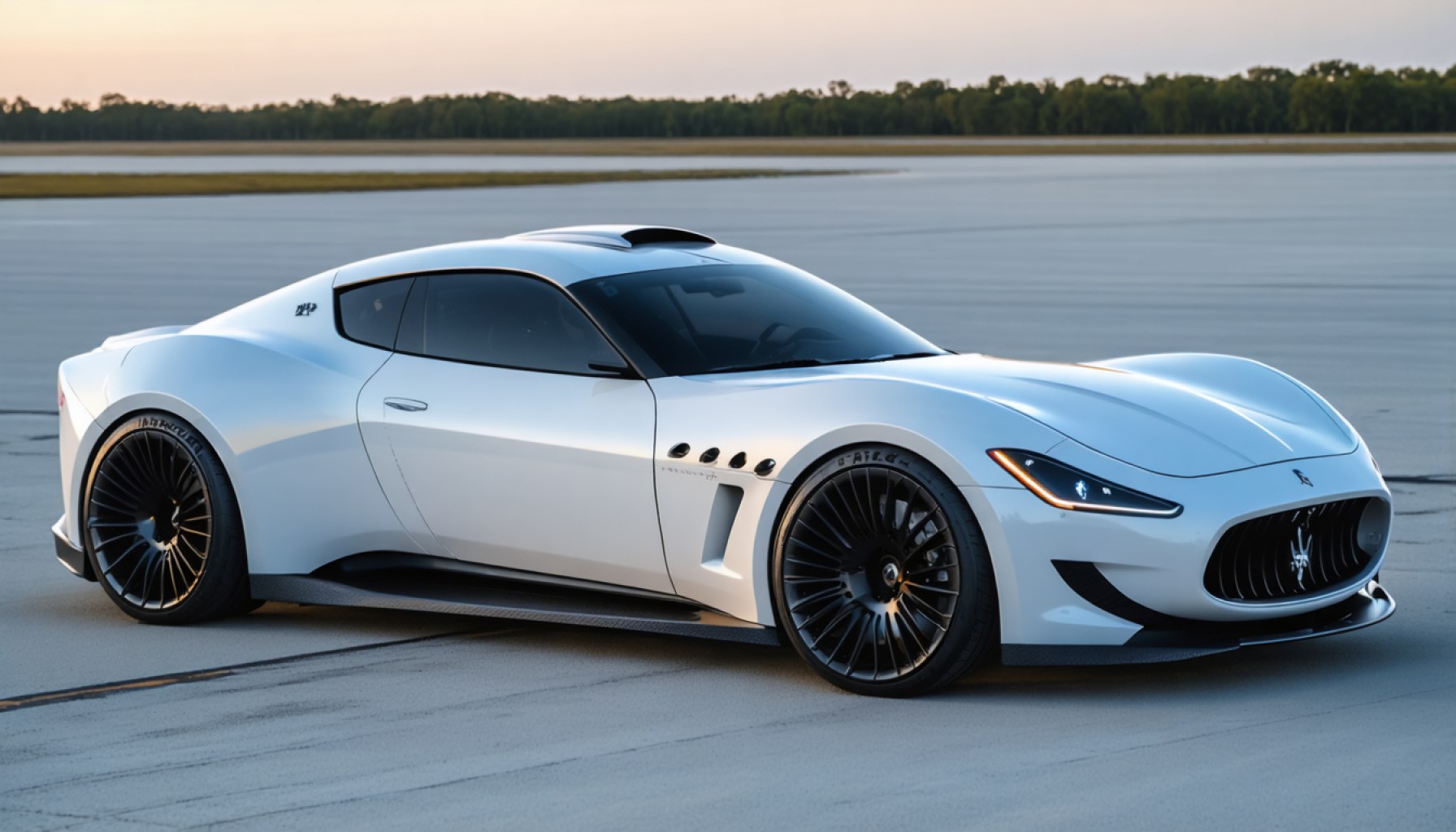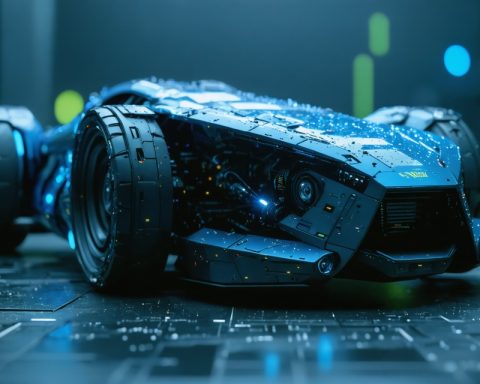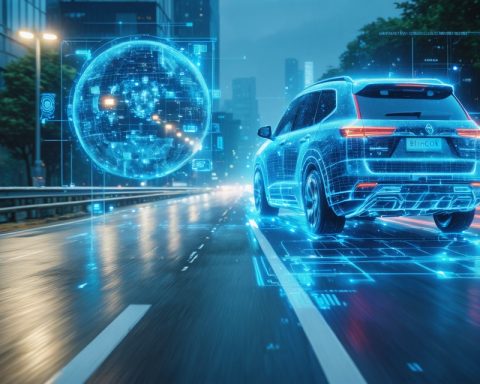- The Maserati MC20, enhanced with artificial intelligence, achieved a groundbreaking speed of 197.7 mph at the Kennedy Space Center, surpassing previous autonomous records.
- Key collaborators include Maserati, Politecnico di Milano, and the Indy Autonomous Challenge, driving innovation in both automotive and AI sectors.
- The core aim is to refine autonomous technology for safe, efficient navigation on real-world highways, signaling a shift in mobility paradigms.
- Behind the achievement are sophisticated AI algorithms designed to emulate human intuition and improve road safety, congestion, and ecological impact.
- The accomplishments highlight that while AI will manage everyday commutes, the thrill of driving is preserved for human enthusiasts.
- This milestone exemplifies how AI and robotics are transforming automotive landscapes, blending cutting-edge technology with traditional experiences.
Picture this: a sleek Maserati MC20, its aerodynamic lines slicing through the air like a futuristic arrow, powered by not just an engineering marvel of a V6 engine but by the unseen hand of artificial intelligence. This month, at the renowned Kennedy Space Center, the Maserati MC20, steered by AI, roared to a dizzying speed of 197.7 miles per hour, shattering the previous record held by an Indy Autonomous Challenge vehicle. Yet, the true story lies not in the number on the speedometer, but in the groundbreaking leap toward autonomous possibilities.
The collaboration between Maserati, Politecnico di Milano, and the Indy Autonomous Challenge has piqued the curiosity of automotive and technology enthusiasts alike. Maserati’s twin-turbocharged powerhouse, ordinarily a beast in the hands of a skilled driver, finds a new symbiosis with AI, pushing boundaries and setting new records on one of the world’s longest runways. With the horizon as its only limit, the AI-controlled MC20 inches closer to human-driven capabilities, creating waves in both automotive innovation and artificial intelligence realms.
Today’s task of accelerating to record-breaking speeds is not merely to showcase raw power but to test and refine the autonomous technology under the most extreme conditions. At the core of this initiative lies an ambition to redefine mobility—aiming for a future where autonomous vehicles navigate our highways safely and efficiently. The endeavor is backed by research to make autonomous systems more precise, robust, and reliable—paving the way for them to potentially rule the roads.
Behind this mechanical milestone are the masterminds from Politecnico di Milano, who have meticulously crafted the AI algorithms that drive the vehicle. Their work with deterministic algorithms ensures the car not only understands but anticipates the road ahead, mirroring human intuition using artificial smarts. The vision extends beyond speed records; it’s about using AI to assist drivers, reduce road congestion, and usher in an era of environmentally-friendly transport by optimizing vehicular use.
While reaching speeds close to its human-driven potential, the MC20 serves as a crucial case in point for autonomous advances. The success at Kennedy Space Center fuels aspirations for real-world applications, where the technology can seamlessly blend into urban landscapes, reducing traffic woes and elevating public safety.
The whispers of roaring engines highlight a promise for car aficionados—a testament that driving isn’t poised to become extinct. Maserati, along with its research allies, ensures that while AI may take over the mundane city commutes, the adrenaline-fueled joyrides on the race track remain firmly in the hands of humans. As robo-drivers continue to evolve, rest assured, enthusiasts can look forward to an exciting future where they still command the wheel, listening to the hypnotic symphony of an engine in full flight.
The Maserati story at Kennedy Space Center is not just about speed checks and records; it’s a daring look at how advanced robotics and AI are shaking up the traditional molds, offering a thrilling glimpse into what’s just around the bend.
Maserati MC20 and AI: Forging a New Path in Autonomous Driving
Introduction: The Maserati MC20’s AI Moment
AI’s intersection with luxury vehicles has found a stellar representation in the Maserati MC20, an automotive marvel that has recently achieved a significant milestone. The collaboration between Maserati, Politecnico di Milano, and the Indy Autonomous Challenge didn’t just break speed records but broke new ground in the fusion of cutting-edge AI with high-performance vehicles.
Expanding the Horizons of Autonomous Vehicle Technology
1. How AI Enhances Maserati MC20’s Performance:
– Advanced Perception Systems: The AI employs state-of-the-art sensors and cameras, providing a holistic 360-degree view, ensuring real-time data is processed with minimal latency.
– Predictive Algorithms: Developed by Politecnico di Milano, these algorithms allow the AI to predictively learn driving patterns, adapting to dynamic conditions much like a human driver.
2. Real-World Use Cases:
– Urban Infrastructure Integration: The technology promises future applications in traffic management systems and smart cities, potentially reducing congestion and enhancing public safety by predicting and controlling flow in real-time.
– Assistive Driving Features: The same AI technology can improve driver assist systems, offering features like predictive collision avoidance and autonomous parking.
3. Market Forecasts & Industry Trends:
– Rising Demand for Autonomous Systems: The global autonomous vehicle market is poised to grow at a CAGR of approximately 16.5% through 2026, driven by advancements like those seen in the MC20 project.
– Shift Towards Sustainability: AI optimization of vehicle performance is contributing to reduced emissions and fuel consumption, aligning with global sustainability goals.
Exploring the Challenges:
1. Limitations and Controversies:
– Safety Concerns: While AI offers precision, real-world testing for varied conditions is necessary to overcome unpredictabilities in urban settings.
– Ethical and Regulatory Hurdles: Developing safety standards and ethical guidelines remains pivotal in deploying autonomous vehicles.
2. Security & Privacy:
– The integration of AI and IoT systems brings to the forefront concerns about data privacy and the security of AI systems, necessitating robust protective measures.
Actionable Insights:
1. Pros & Cons Overview:
– Pros: Enhanced safety features, reduced traffic congestion, and potential environmental benefits.
– Cons: High development costs, regulatory challenges, and the ongoing need for technological refinement.
2. Quick Tips for Enthusiasts:
– Embrace technology developments in existing vehicles with regular software updates that offer advanced safety and control systems.
– Participate in driver training programs that focus on AI-assisted driving to better understand and utilize these technologies.
Concluding Thoughts:
The journey of the AI-driven Maserati MC20 at the Kennedy Space Center is not just a testament to high speeds but to a future shaped by intelligent mobility solutions. While human passion for driving and the automotive aesthetic will remain, the incorporation of AI represents an exciting evolution in automotive technology poised to redefine how we drive.
Explore More:
For further insights into automotive innovation and cutting-edge technology, visit [Maserati’s official website](https://www.maserati.com).















